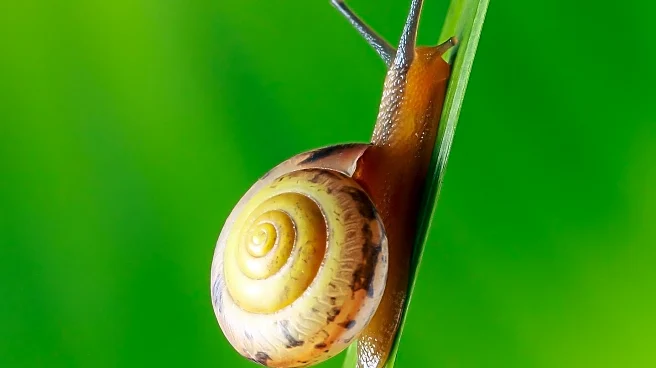What is the story about?
What's Happening?
Snail mucin, a natural compound used in Korean skincare, is gaining traction in the U.S. for its hydrating properties. Dermatologists like Dr. Dendy Engelman and Dr. Hadley King highlight its benefits, including hydration, wound healing, and support for collagen and elastin. Despite its popularity, experts note that other well-studied ingredients may offer similar or superior benefits. Snail mucin is harvested from snails in farms, and while generally well-tolerated, it may not be suitable for all skin types due to its glycolic acid content. The ingredient is not vegan, and its effectiveness in anti-aging remains less documented compared to traditional skincare ingredients.
Why It's Important?
The rise of snail mucin in skincare reflects a broader trend towards natural and exotic ingredients in beauty products. Its popularity on platforms like TikTok underscores the influence of social media on consumer behavior and product trends. While snail mucin offers potential benefits, the lack of extensive research compared to established ingredients like retinol or vitamin C may lead consumers to weigh its novelty against proven efficacy. The ethical considerations of snail farming and the non-vegan nature of the product may also impact consumer choices, particularly among those prioritizing cruelty-free and vegan products.
Beyond the Headlines
The trend towards using snail mucin highlights the cultural exchange in beauty practices, with Korean skincare continuing to influence Western markets. This trend may encourage further exploration of other traditional or lesser-known ingredients, potentially leading to a more diverse range of skincare options. The ethical implications of ingredient sourcing and animal welfare in beauty products may also gain more attention, prompting brands to adopt more transparent and sustainable practices.














